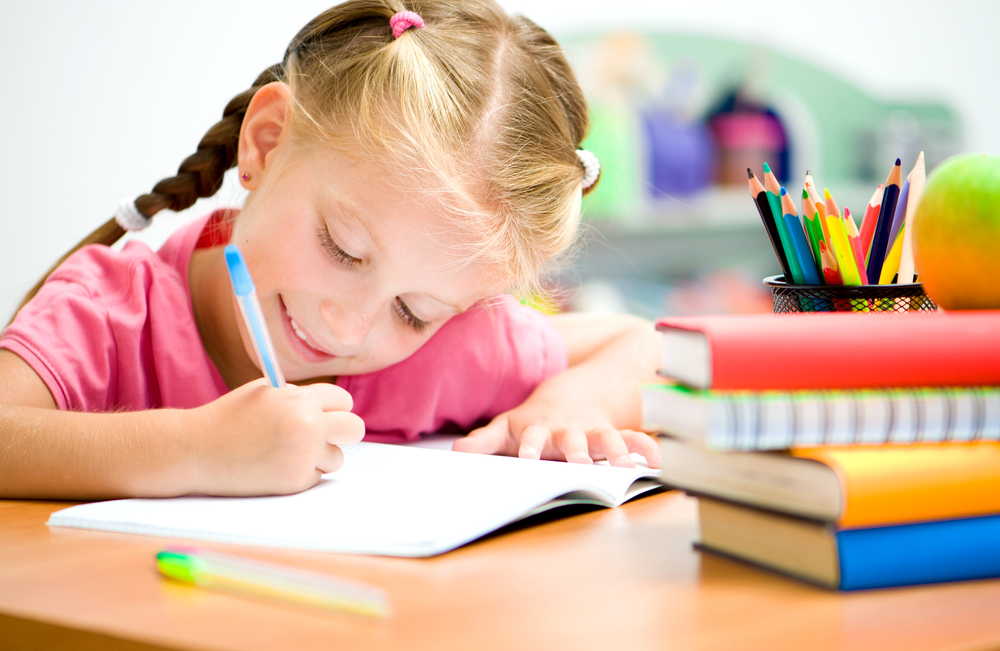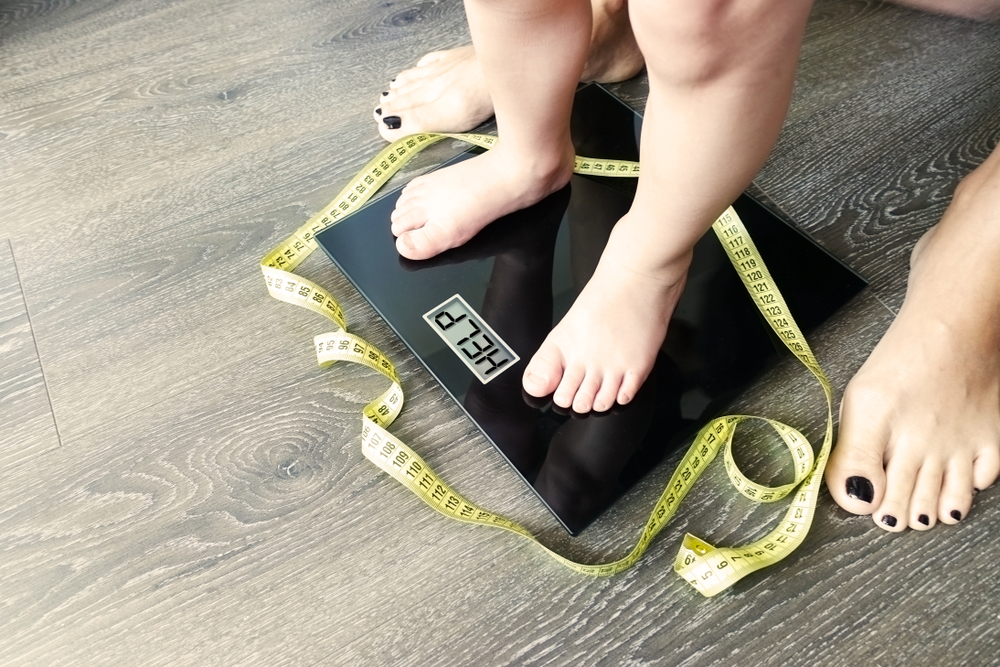Conversion skills Worksheets for Ages 6-9
5 filtered results
-
From - To
Our "Conversion Skills Worksheets for Ages 6-9" are specially designed to help young learners master essential conversion skills. These engaging worksheets make learning fun and interactive, helping children understand concepts such as measurement units, time, and money conversions. Through a variety of exercises, kids will enhance their problem-solving abilities and develop a solid foundation in practical math applications. Perfect for both classroom and home use, our printable worksheets support and reinforce critical thinking skills. Bring learning to life with our expertly crafted resources that make education enjoyable and accessible for ages 6-9.
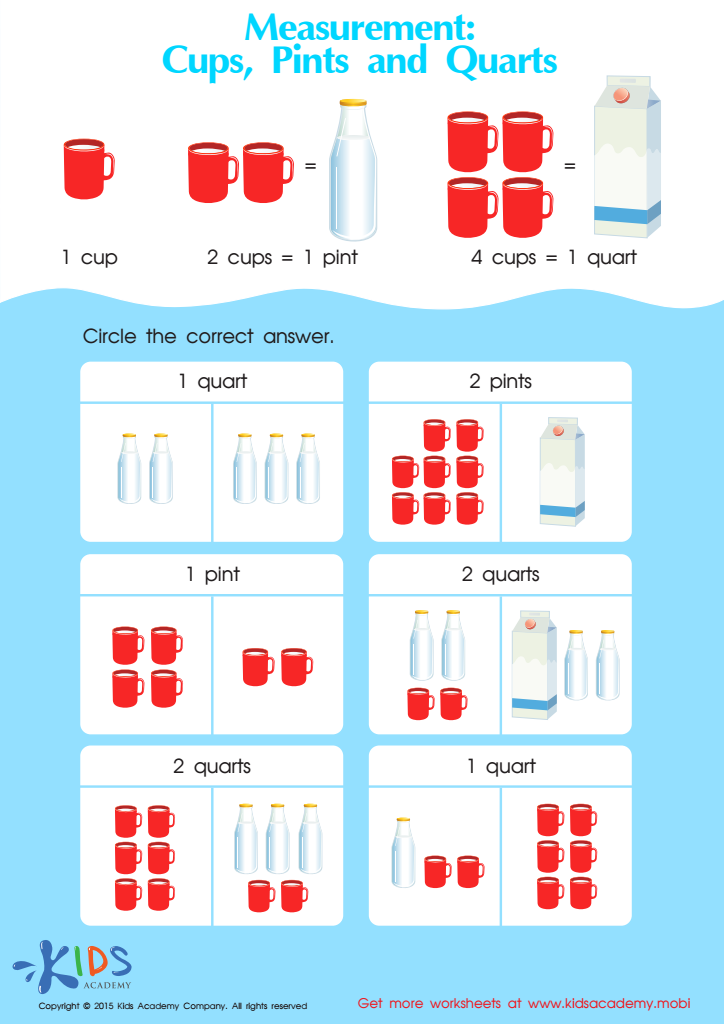

Cups, Pints and Quarts Worksheet
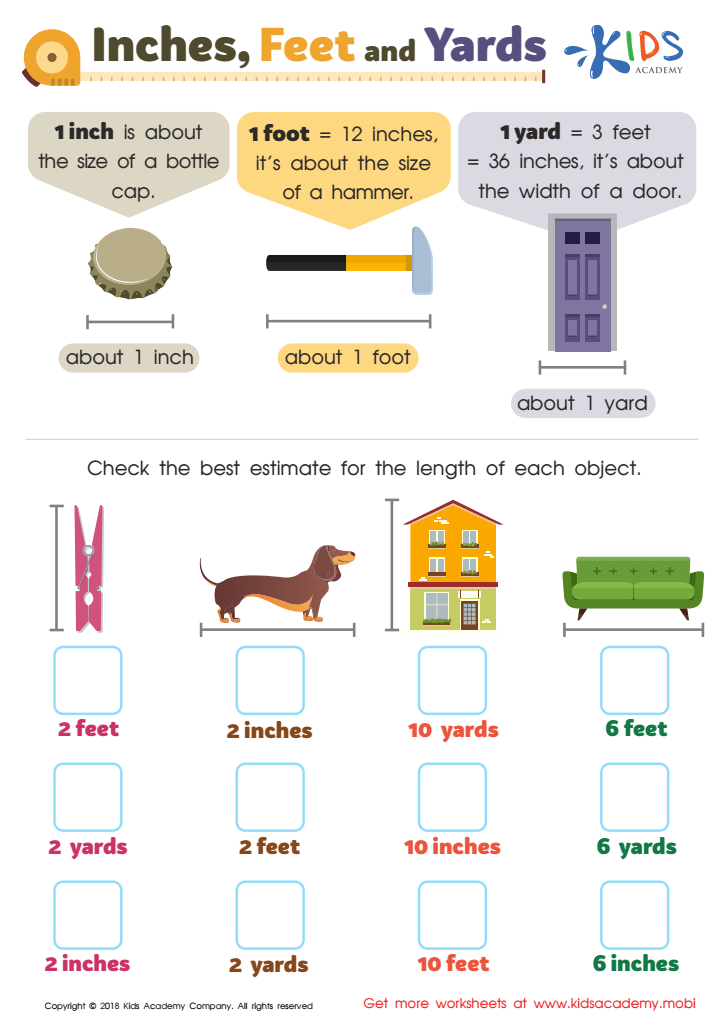

Inches, Feet and Yards Worksheet
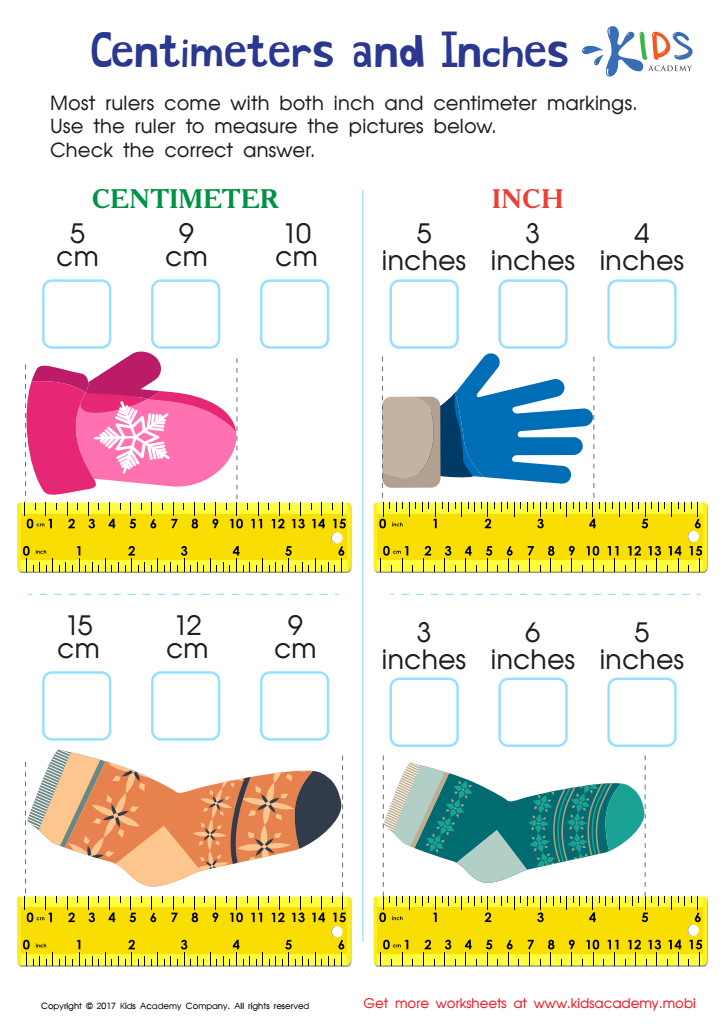

Centimeters and Inches Worksheet
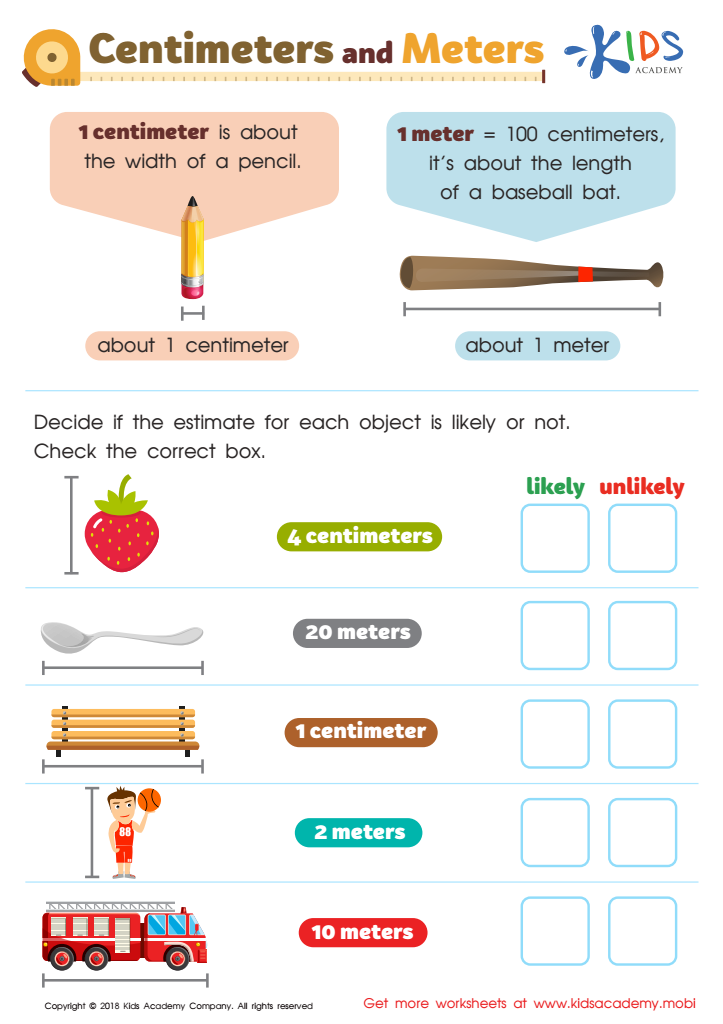

Centimeters and Meters Worksheet
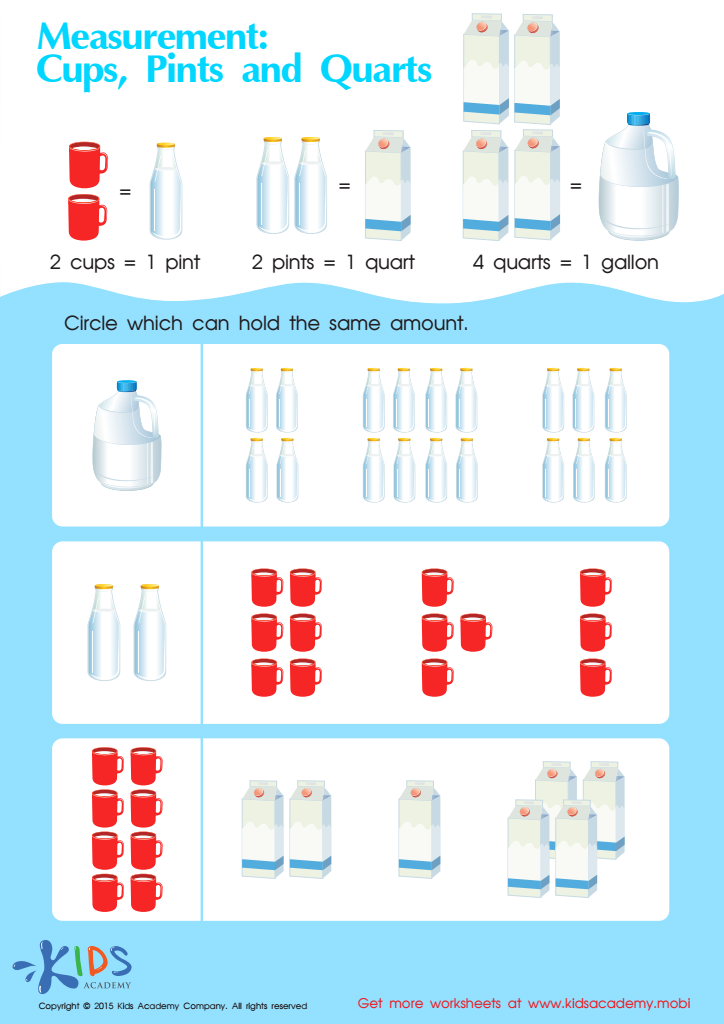

Cups, Pints and Quarts 2 Worksheet
Conversion skills, or the ability to change between different units of measurement, should be a key focus for parents and teachers of children ages 6-9. This foundational mathematical concept builds critical thinking and problem-solving skills, and supports academic growth in various subjects such as math, science, and even real-world activities like cooking or building.
Firstly, children in this age group undergo rapid cognitive development, and introducing them to conversion concepts fosters numerical literacy. Understanding units, whether in terms of length, volume, or time, helps students grasp how quantities relate to the world around them. For example, converting inches to feet or minutes to hours enhances their spatial awareness and time management abilities.
Furthermore, early familiarity with these skills lays the groundwork for more complex mathematical operations they will encounter later. It enhances logical reasoning since children learn that different units can describe the same quantity differently but equivalently. This ability to switch perspectives builds flexibility in thinking, an immensely valuable cognitive trait.
Lastly, conversions are part of everyday life. Whether measuring for a recipe or calculating the duration of a trip, these skills will improve a child’s self-sufficiency and confidence in navigating various tasks independently. By emphasizing conversion skills early on, parents and teachers set children up for both academic success and practical competency in everyday activities.

 Assign to the classroom
Assign to the classroom



